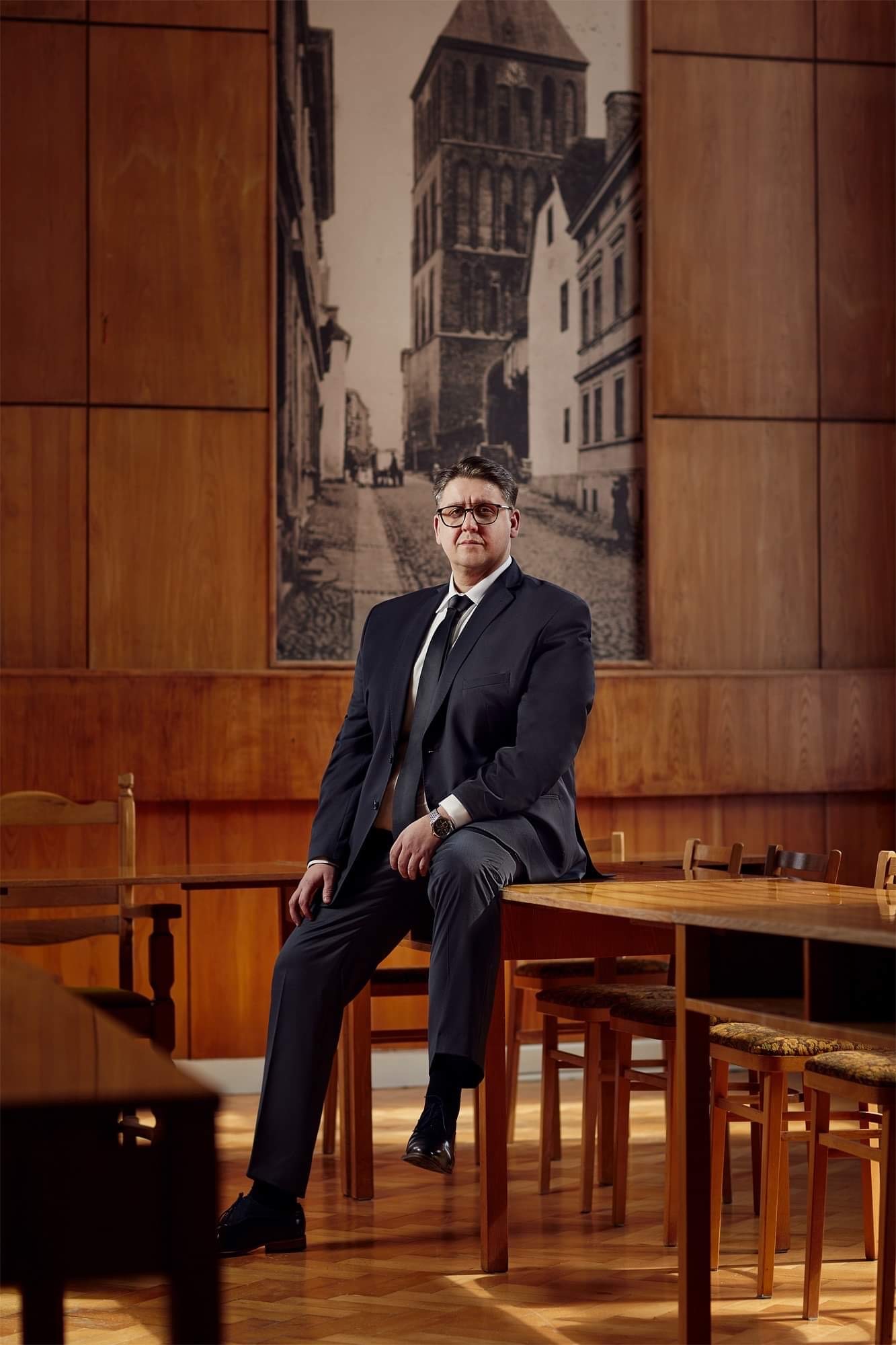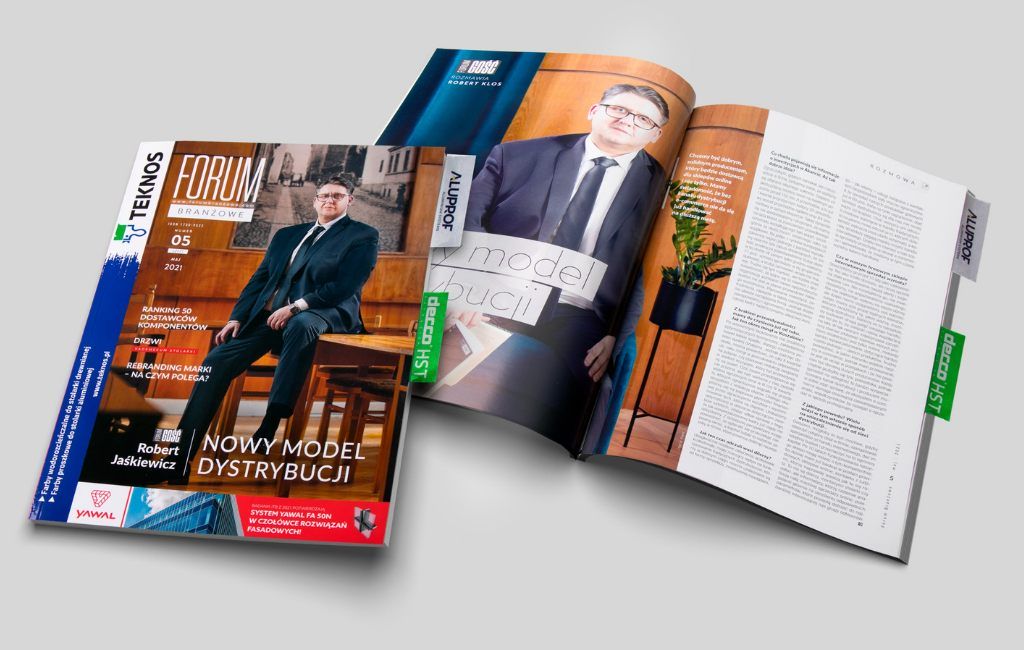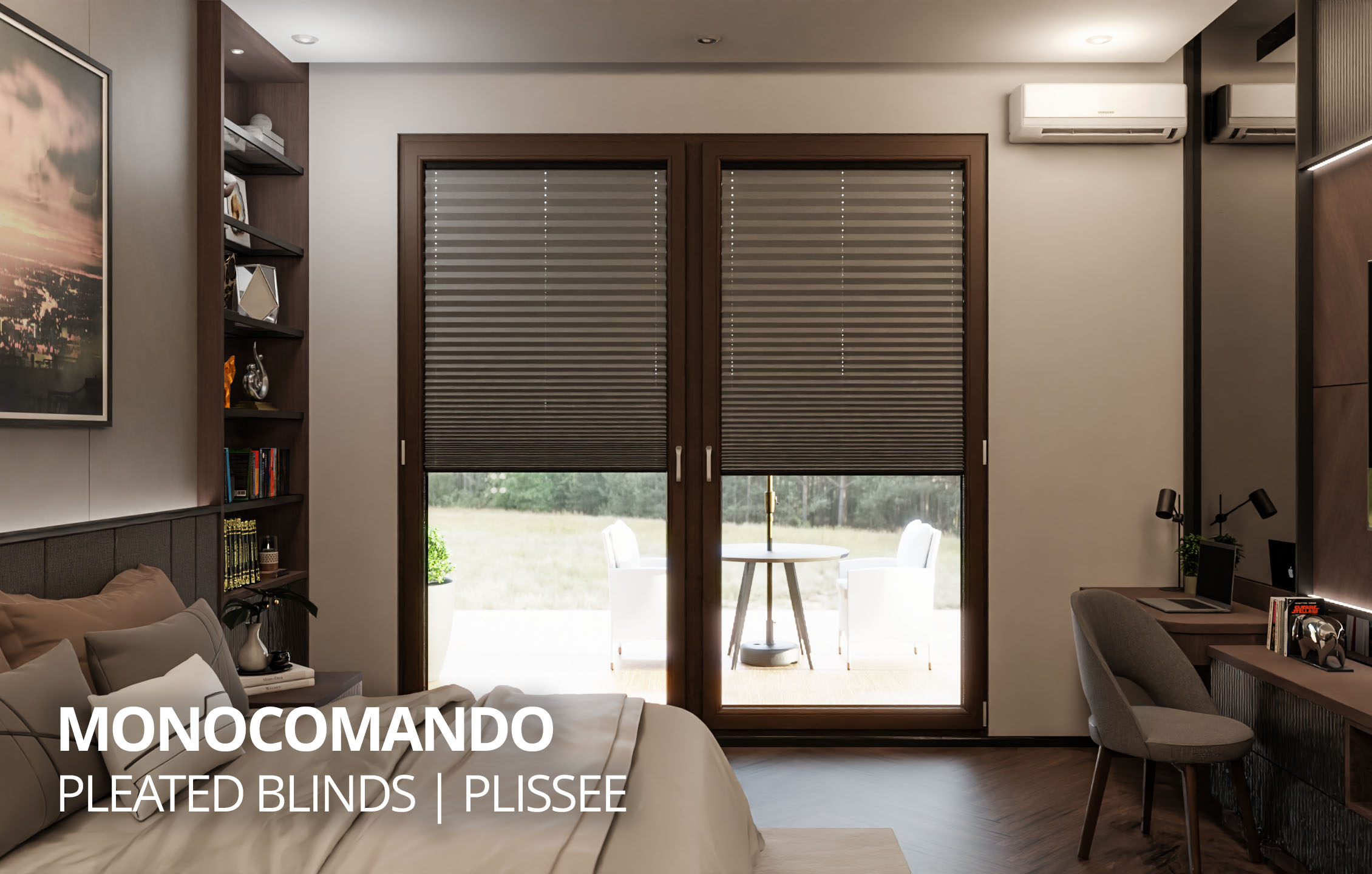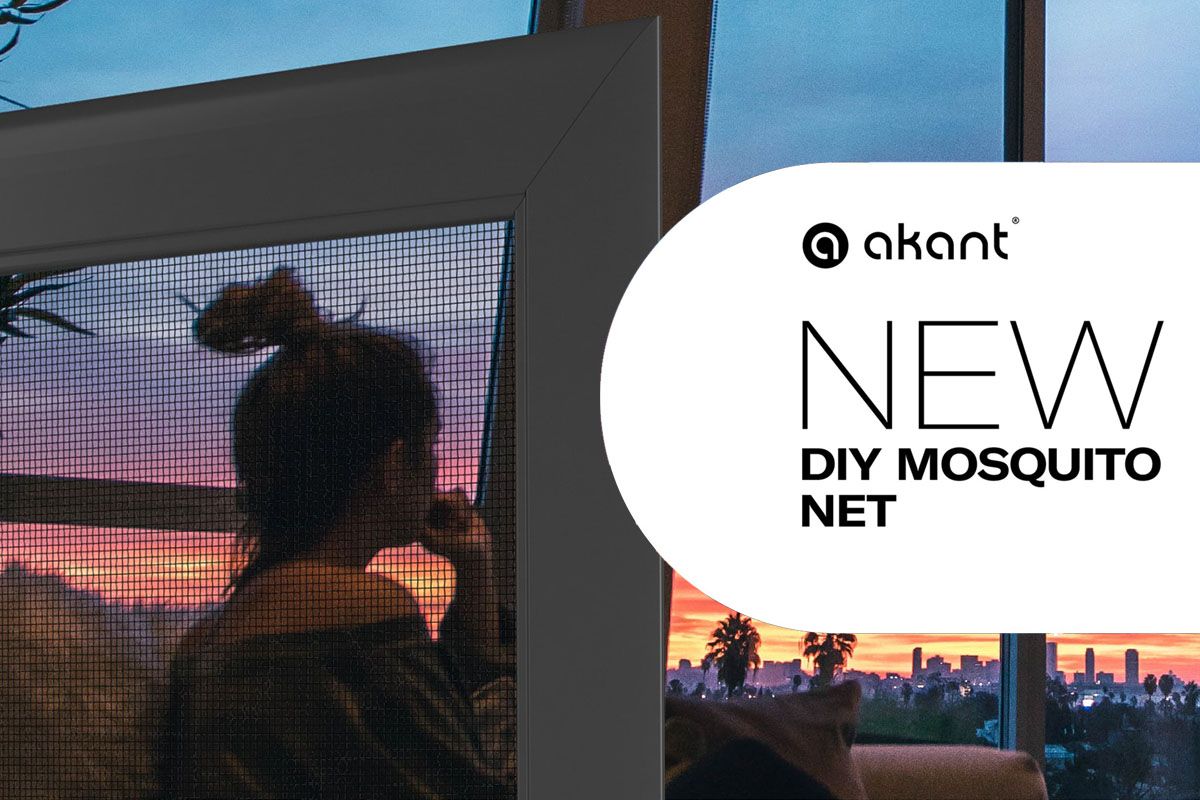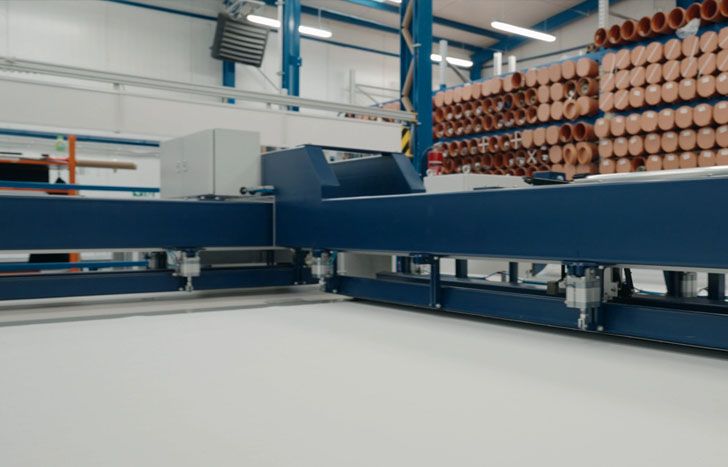The interview of Robert Klos publisher of ‘Forum Branżowe’ Magazine with Robert Jaśkiewicz, CEO at Akant.
- We hear more and more news about Akant investments. Is it really going that well?
I would be sinning if I were to complain, but indeed, we even joke within the company that we’ve become victims of our own success. We’ve only just finished the last season with an excellent income level of over PLN 102.4 million, and the first quarter has already brought us another 20% growth in total income, with 84% growth in exports alone. We didn’t expect such a growth, and I must admit that we have quite a lot of trouble finding the right pattern shaping the demand, especially since the circumstances of the last year have been extraordinary. To one of the European markets… actually a modest region of one country, we now ship so many wooden blinds that their number probably exceeds the number of windows in that area. In December alone, we had a 71% increase in sales in this product group, and the number of orders is not slowing down at all. It would be difficult to worry about this, but we should be aware that it involves disorganization as even an optimistic budget cannot anticipate such a scenario. Planning investments, hiring, stock in such a reality doesn’t make it easier to manage the company… so it’s worth emphasizing that investing in the management staff was crucial. It is only thanks to the commitment and tremendous experience of our staff that we continue to stay on the right course.
- We’ve been dealing with this lack of predictability for a year now. How did it go in Koszalin?
After the lockdown in spring, we didn’t write optimistic scenarios for ourselves, we even assumed a slight decline, and thus we had a certain outline of what to do. But looking around, you could say that the whole of the second quarter of last year was spent looking for an answer to the question „whether to plan a reduction linked to the big crisis that was predicted for the fall“. No entrepreneur will admit it today, but the threat of huge losses in the third or fourth quarter loomed over many of us, the reduction of which was primarily associated with job cuts. This is why we’ve focused on improving financial liquidity by reducing costs and eliminating unnecessary ones… we’ve avoided optimisation in the area of human resources, realizing that we would never get such highly specialised personnel back. From today’s perspective, I can say that it paid off to wait out the uncertain times, and human capital is the last branch in the company that should be affected by recession.
- And how were your dealers affected by this period?
Last year’s „COVID“ turmoil, albeit temporary, had a significant impact on the functioning of traditional distributors who continue to depend heavily on the form of sales culminating in installation and, as we know, services involving personal contact were severely limited. Our finished products are already sold in 69% to foreign markets, hence distributors abroad are no less important to us than domestic ones. Therefore, while all of them have been affected by the temporary fluctuation in traditional trade, it has certainly been felt less by those operating outside the established patterns, whose sales channels include, among other things, e-commerce. Thanks to them, the scale of sales also shifted towards e-commerce for us, resulting in us having a clear balance of trade at that time.
- Have sales increased in your company’s online store?
We created it 10 years ago as a curiosity, not as a source of income, but rather as a way to continuously present our offer and suggest prices. We didn’t develop it, we didn’t invest, we didn’t involve marketing. It doesn’t have a major impact on our turnover, but thanks to it, we’ve achieved something more important: we now have a group of loyal customers, whom we have infected with this very important distribution possibility. We gave them this tool so that they could build themselves a second branch for their trade, but also to cement our cooperation for years to come. In the so-called meantime, we’ve also started to acquire customers whose business profile is online only, with a highly specialised focus that often involves one/two products. What direction will domestic e-commerce take… it’s hard to say, but I am convinced that it’s still in its infancy and should not be the domain of large manufacturers. Everyone would be happy to get rid of the so-called „middleman“, but distance selling is a highly specialised distribution channel and the manufacturer must realise that the e-commerce ecosystem requires the use of advanced analyses, indicators to develop e-sales in a professional manner.
- And why is that? Many see it as a way of becoming independent of the distribution network.
Yes, it could be possible if you were to create a separate department within the company, involve e-commerce specialists, give them a separate budget and allocate huge capital. After these 10 years that our shop has been in operation, I can speak about it with competence, because today I have a backup in the form of real online shops, contact with people who really know how to do it today. They are not dealers or assemblers of joinery or covers, but IT specialists who thoroughly analyse the whole online sales machine, which mainly consists in defining the right parameters that will allow us to reach the audience we are most interested in. Anything can appear on such a platform, e.g. motorbike parts, everything – for them, it’s not important what is „in the box“, what counts is the knowledge of analysis, keeping track of the potential customer’s choices, targeting. It’s not a form of effective call-center that only gives information about the status of an order or helps with the order, just the opposite… if customer service engagement is still at a high level, it means that the shop configurator and automatic mechanisms concerning statuses are ineffective. Against this background, a window or cover manufacturer can forget about the possibility of ruling the online market, building an advantage, because it simply has no competence in this area. It is therefore quite a challenge to be that manufacturer who no longer needs distributors or who deliberately bypasses them thanks to direct sales. I will go even further… today, more than a few small manufacturers are facing the challenge of what kind of business profile they should choose for the foreseeable future… still demanding production or a middleman. We already know – we want to be a good, reliable manufacturer that will be a supplier for online shops and more. We are aware that it’s no longer possible to trade in the long run without an e-commerce distribution channel.
- So where are we going to sell this joinery in the future: in outlets or online stores?
The dilemma with the place of purchase, whether it’s going to be a traditional shop or a virtual one, is entirely secondary. After all, most manufacturers already sell their products online today via a B2B platform! More than one authorized dealer „X“, which has been a window distributor in this one place treated as a traditional shop for 30 years, has long since started ordering online without being aware that it has gone through this process seamlessly, presumably unable to imagine using any other ordering method. So you have already implemented online sales a long time ago! It’s just that the seller „X“ waiting for a customer in their little outlet is not enough anymore. Many customers have already moved to the Internet, so the manufacturer will soon be unable to function without salespeople who use all methods of communication. The distribution model is changing completely right in front of our eyes. For a dealer, the most important change will be that they will no longer be just a salesperson but must become an advisor to the investor… regardless of size. In the future, whoever has better advisors that are informed about the product itself as well as the complexity of the installation process… they will have the upper hand in the market.
- Why advisors and not, for example, installers?
Undoubtedly, installers as well, as exemplary service is nowadays the key to a customer satisfaction, but above all I would put competent salespeople who will be able to make the customer aware of the successive stages of their investment and the obstacles and difficulties associated with it. In our industry, there is a lot to be presented as early as the property design stage. It does not feel like an essential part to us, which manifests itself in poorly chosen technical cover systems that are very important for a house built according to the principles of energy-efficient construction. We will continue to require the installer to be diligent in following procedures. Instructions, videos launched with QR codes, VR applications will provide knowledge on this. The installer will get a „checklist“ with their tasks and will have to tick off their activities one by one. The person responsible for the installation won’t have to understand much, e.g. about automation, smart home operation, etc., but they will have to follow the installation instructions diligently, meet the manufacturer’s installation requirements, sign the protocol and hand over the manual to the user… that’s all. So that I can be understood correctly… installation should remain in the hands of specialists… and many installation specialists should’ve already become advisors.
- The integrity of the construction may also enforce the integrity of the production. So will window manufacturers take over production of covers or will they enter the e-commerce market with their offer?
Oh, but that’s already happening. Just yesterday, I read your post about Drutex launching the production of exterior Venetian blinds. It has already been producing roller shutters for a long time. The same is happening with other window manufacturers and it is an irreversible process. When referring to the online, we have to look at it the way the investor, the end user, sees it. So if they associate a window with a roller blind with demanding installation that consumes human resources, transport requires specialised equipment, etc., it’s hard for them to imagine doing it by themselves and buying such a large-scale part of the construction on-line. As long as windows are subject to regulations such as energy efficiency, thermal regulation and thermal insulation, it is difficult to imagine that they can be easily sold online. The exterior covers will end up the same as windows. Because even though they were an integral part of the covers segment, they are now an important element of the window joinery offer.
- So the same fate awaits the technical interior covers?
No. A completely different scale of colour options, possibilities of product configuration with hidden multi-level dependencies, the ubiquitous „hand-made“ for individual solutions is hardly a treat for a window manufacturer who today is immersed in solutions for innovative production lines that improve efficiency. All ‚light‘ solutions will go their own way… e-commerce, DIY chains or the advanced distributor working with interior designers, who will still be obliged to choose the form of its business between internal and external solutions. The interior covers will be installed by the user thanks to intuitive solutions of a non-invasive „easy click“ installation, which won’t even require basic DIY tools. Detailed tutorial videos are the only assistance for the end-user… in a good sense. The manufacturer will be obliged to provide a 24-hour service: today you click – tomorrow you receive colour samples for fabrics and more. This is already redefining the form of cooperation with a textile solution distributor, whose customers analyse the offer in the comfort of their own home. Another important aspect is the timing of choosing interior systems in relation to the whole project that is „construction“. Exterior systems are the „building shell“ stage, which, unlike interior solutions, is planned well in advance of the house decor. It is the interior finishing stage that is reserved for lightweight technical covers and it is, among other things, the timing of choosing the aforementioned systems that allows us to differentiate between these two forms of business.
- Akant is the leading company in the Polish covers segment. What has been the most important factor for your success so far?
People, definitely people. Both our highly advanced staff and our clients – it’s all linked together. All changes leading to growth are initiatives of our employees, who stand out not only because of their specialisation in their field, but also their ability to observe and analyse the market and draw the right conclusions. I like to surround myself with people whose knowledge and competence impress me. Like most companies in this industry, we have grown along with the market, gradually extending and perfecting our product range. However, it is not the finished products that set us apart, but our narrow specialisation in pleated blinds. Around 2009, we offered components for their production to our potential competitors and thus we stood out in the market. We showed our innovativeness by getting rid of the fear of close collaboration with competitors. We’ve gained recognition. At meetings with customers, we tried to infect them with our enthusiasm for the new product, and conclusions were forming themselves – selling components is not everything. Training and the machinery park were an important aspect. At the time, our advancement in the production of pleated blinds was at the level of a saw and drill, and often a larger manufacturer than us had a completely different vision of the production line – it dawned on us then that this area was much broader. And so, whether we wanted it or not, we had to provide potential customers with specialised machinery. Today, component sales account for more than half of our revenue. However, we continue to stand out by specialising in pleated blinds as a finished product. This is where we are the best.
- Innovation has given you success in the past. What factor will give you an edge for the future?
In my opinion, in 10-15 years, the winners will be those companies that manage to reduce human resources, to limit human involvement in the production process. I therefore expect, in the area of interior covers, significant automation of production and robotisation, which will accelerate the development of industry 4.0. The best companies in the 2030s will have an above-average share of robotisation on the production line and this will be their most important success factor. There will be a fight to exclude humans from the production process and replace them with widely understood automation, the efficiency of which cannot be matched by the power of human hands. The fewer production errors, the better the efficiency. Human capital will still form the backbone of the company but the status of positions will change to: machine operators, automation specialists, IT specialists. Of course, there will be many areas of activity that will continue to require craftsmanship, but it’s an element that will remind us of our heritage, something that is not worth changing by force.
- Lastly, let us return to your investments. Where will you lead them?
This really doesn’t depend on our will, but on the market situation, which, as we said earlier, is extremely dynamic. We talk about the need for a new investment after almost every season, and in 2015 we had a project to build a new 7,000 sq. m headquarters. On a 12,000 sq. m plot. But what of it, when it turned out at the end of the season that it was no longer enough for us. So we rented something bigger elsewhere. Today we are already preparing yet another relocation, and I do not rule out the possibility that we will have to immediately build a hall of 30-40 thousand square metres with a margin for further development depending on the product offer. However, I think that for interior covers, the optimal production space along with a warehouse should not exceed the area of 20,000 sq. m – that should be enough. Especially as there are no pioneering products in this industry, for which specialised production lines need to be generated. Today, the fight is for efficiency and quality, not for new spaces.
- So then I wish you the highest one possible, while thanking you for this interview.
Robert Jaśkiewicz (41) has gained experience in various industries at home and abroad. Learning about the operations of different organisations has taught him that vision is the most important aspect of running a business. His ambition led him to the position of the Chairman at Akant, where he started as a sales representative in 2008 and worked his way up the career ladder. In his private life, he is a husband, father of two daughters, motorbike enthusiast, owner of several classic Harley motorbikes, wine connoisseur with a level one sommelier certificate.
